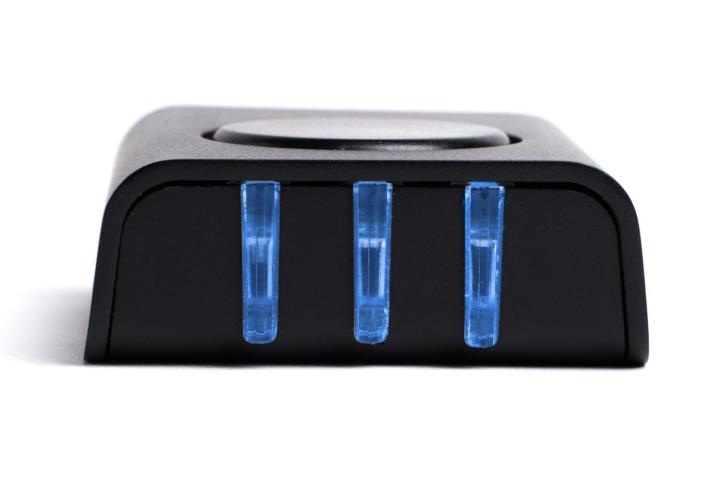
Some folks love hogging the coveted 3.5mm cable at a party and choosing every song on the playlist, never relinquishing control of the tunes.Grace Digital’s 3-Play Bluetooth receiver is not for them — it’s for music lovers who want to sit around with other music lovers and share their tunes with each other (hoping to play something that the others haven’t heard yet), or for those three roommates having a party who each want to get a stab at the playlist.
The receiver works by connecting to your home stereo via 3.5mm analog jack, standard RCA connectors, or optical TOSLINK (cable not included). Then up to three aspiring DJs connect their Bluetooth-enabled smartphones or music players, and the live playlist begins. The 3-Play also has the potential to be the perfect road trip jukebox, allowing three passengers to have their way, not just the driver.
One thing that remains unclear is whether the device has some kind of adjoining software or app for creating and managing said playlist — if not, the 3-Play could lead to a chaotic start-stop nightmare in which the DJs battle for the current track and songs never finish. We’ve reached out to Grace Digital for answers to these inquiries, and will update here as we receive responses.
Additionally, 3-Play can remember up to seven Bluetooth devices, allowing quick and easy access for your most frequent music mates. And have no fear if you and your friends are picky audiophiles — the device comes standard with audio optimization via aptX, AAC and SBC high bitrate support, as well as a high bandwidth Bluetooth connection. It can run for about 10 hours with its built-in rechargeable Lithium-ion battery.
At $100, 3-Play is a pretty hefty piece of affordable badassery, especially considering that — at the very least — it can turn any home stereo into a Bluetooth-compatible system, much like BeeWi’s dock-able Bluetooth headphones.
Are you interested in a device like the 3-Play? Let us know in the comments below.


